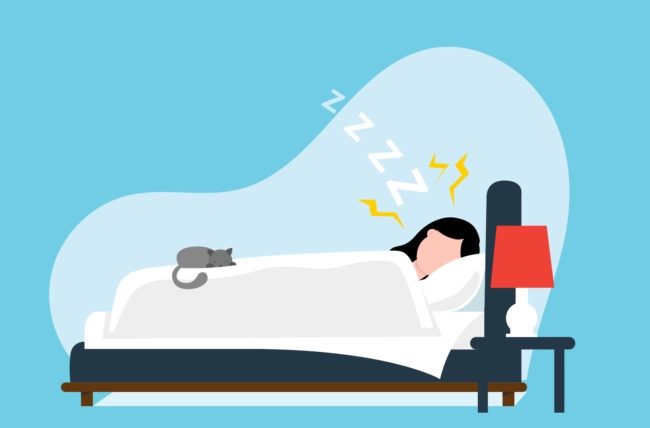The Serious Health Implications of Snoring and Sleep Disorders You Need to Know
Snoring and sleep disorders are common issues that affect millions of people worldwide. However, they are not just harmless nuisances. In fact, they can have serious health implications that should not be overlooked.
Heart Diseases – An Increased Risk
Studies have shown that snoring and sleep apnea can contribute to an increased risk of atherosclerosis, which is the hardening of arteries. This condition can lead to heart attack, stroke, and other cardiovascular diseases. Moreover, a lack of quality restorative sleep can also lead to a higher incidence of hypertension or high blood pressure.
To reduce the risk of heart disease, it is important to get checked out by your doctor if you snore regularly or suffer from sleep apnea. Simple lifestyle changes such as finding the best pillows for snorers, sleeping on your side, reducing stress, and using a CPAP machine can help alleviate symptoms associated with sleep apnea.
Type 2 Diabetes – An Unwelcome Association
Snoring and sleep disorders are also linked to an increased risk of developing type 2 diabetes. Poor quality sleep can lead to higher levels of insulin in the body, increasing the risk of developing diabetes. Furthermore, a lack of restorative sleep can also interfere with the body’s normal glucose metabolism, resulting in higher levels of glucose in the bloodstream.
If you snore or suffer from sleep apnea, it is important to take steps to improve your quality of sleep. Establishing a good night-time routine, regular exercise, and a healthy diet can help reduce your risk of diabetes and other health conditions.
Increased Risk of Obesity – A Vicious Cycle
The lack of quality restorative sleep associated with snoring and insomnia is linked to an increased risk of obesity. Without adequate rest, the body will produce more cortisol, which can lead to weight gain in some people. Additionally, a poor night’s sleep can lead to an increased appetite, making it harder for a person to maintain their weight.
To reduce the risk of obesity, it is important to practice healthy eating habits and limit late-night snacking. Addressing any underlying snoring or sleep-disordered breathing issues with the help of a doctor is also necessary.
Depression – A Mental Health Consequence
Snoring and sleep disorders can also lead to mental health issues such as depression. Without adequate restorative sleep, the body will produce higher levels of stress hormones such as cortisol, which can cause depression and mood swings. Moreover, studies have shown that people who suffer from sleep apnea are more likely to be diagnosed with depression than those without the condition.
If you snore or experience any other symptoms associated with sleep disorders, it is important to seek medical attention. Talk therapy and lifestyle changes may be necessary to reduce your risk of depression. Getting the recommended 7-9 hours of sleep each night can also help improve mental health and reduce stress levels.
Cognitive Impairment – A Possible Consequence
Without sufficient sleep, the brain cannot function properly, leading to a range of cognitive impairments including memory loss and difficulty concentrating. Furthermore, a lack of restorative sleep can also lead to an increased risk of developing dementia. Identifying and addressing the underlying cause of snoring is essential to reduce the risk of further cognitive decline.
If you snore, talk to your doctor to identify any potential sleep-disordered breathing issues. In some cases, lifestyle changes may be necessary to reduce the risk of cognitive impairment later in life.
Conclusion
As you can see, snoring and sleep disorders are not just harmless conditions. They can have serious health implications if left untreated. Not only do they increase the risk of obesity and diabetes, but they can also lead to depression and cognitive impairment.
It’s important to take snoring and sleep disorders seriously as they can have significant implications on our health. From an increased risk of heart disease and type 2 diabetes to cognitive impairment and depression, these conditions can have long-term effects on our overall well-being.
Fortunately, with the right knowledge and proactive steps, we can reduce the risks associated with these disorders. Seeking medical attention, making lifestyle changes, and adopting healthy habits can all help improve the quality of our sleep and reduce the likelihood of developing further complications in the future.
Remember, a good night’s sleep is essential for our physical and mental health, so it’s worth taking the time and effort to address any underlying sleep issues. With a little care and attention, we can ensure that our bodies get the rest they need to function optimally and enjoy life to the fullest.

